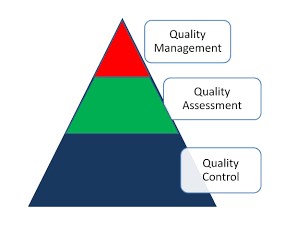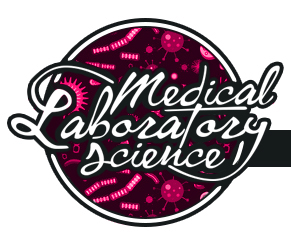|









 |
Laboratory Management
One of the most important task of a good medical technologist is organizing and managing the laboratory section. Involved in managing a laboratory are Planning which allows a health care personnel to know where the lab is going. Organizing is also an important job for a lab manager as he or she determines who does which project and technique, manages the timelines and budgets for multiple projects, and keeps current with research in the fields. Leadership is extremely important for a lab manager, as it often sets the environment and pace of the lab. Good leadership can inspire lab members toward productivity and creativity and help members work together. And lastly controlling a lab involves the evaluation of lab members’ and projects’ progress and the ability to correct problems as they arise.

In further explanation Planning is considering the big picture with all the responsibilities that laboratory management entails, it is easy to make sure the T’s get crossed but to lose sight of the bigger goal. “Self-awareness is vital in time management! It is so easy to believe that you are being productive when you are merely being busy,” says Kathy Barker, author of “At the Helm: A Laboratory Navigator,” a book that instructs new investigators in lab management. “Being able to stand back and truly assess your effectiveness is hard, but it is the only way to make every day count.”

A common suggestion from the experts interviewed was to have a five-year strategy. In a study by McKinsey & Company, all successful, thriving labs utilized three- to five-year plans. While lab members need technical skills to complete individual experiments, it is the lab manager’s job to ensure that all experiments are aimed toward a common goal. The ability to see the bigger picture allows lab members to evaluate a project’s progress and determine future projects, manuscripts and grants. A five-year plan allows you to gauge the progress of your research and keep it goal-oriented.

Second one is Organization takes a number of forms in lab management. Time, people and your physical lab space must be organized and orderly for research to run smoothly. There never will be enough time in the day to complete all the tasks you hope to accomplish, so it is important to know when to say no. While an open relationship with lab members is encouraged, sometimes you need to close your office door. “With time and experience, you should develop the ability to better know what requests will help you in your research and career and which ones will impede you,” Barker says. “You get better at looking into the future to see that you might get no immediate benefit to agreeing to be on a certain committee but that in six months you might gain a chance at more graduate students or a better relationship with an administrator. Lab meetings are a great way to help keep a group of people organized and focused on their goals. Meetings with the whole group allow lab members and the PI to remain informed of events within the lab. They also can be a good forum for brainstorming and troubleshooting.

The third is controlling by making sure your employees succeed. Managing a lab means that there are times when things go wrong and you are expected to fix it. “Managers often lament that ‘all problems come in on two feet,’ which highlights the importance of honing your people skills,” says Forssmann. One of the best ways to prevent issues with employees is to be clear about standards and expectations from the start. If you don’t have your own lab yet, begin learning about lab management now. While you may not run a whole lab, your boss will give you smaller tasks to manage. The ability to manage a little will bringing opportunities to lead larger future projects.
|
|



